
下载亿题库APP
联系电话:400-660-1360

下载亿题库APP
联系电话:400-660-1360

请谨慎保管和记忆你的密码,以免泄露和丢失

请谨慎保管和记忆你的密码,以免泄露和丢失
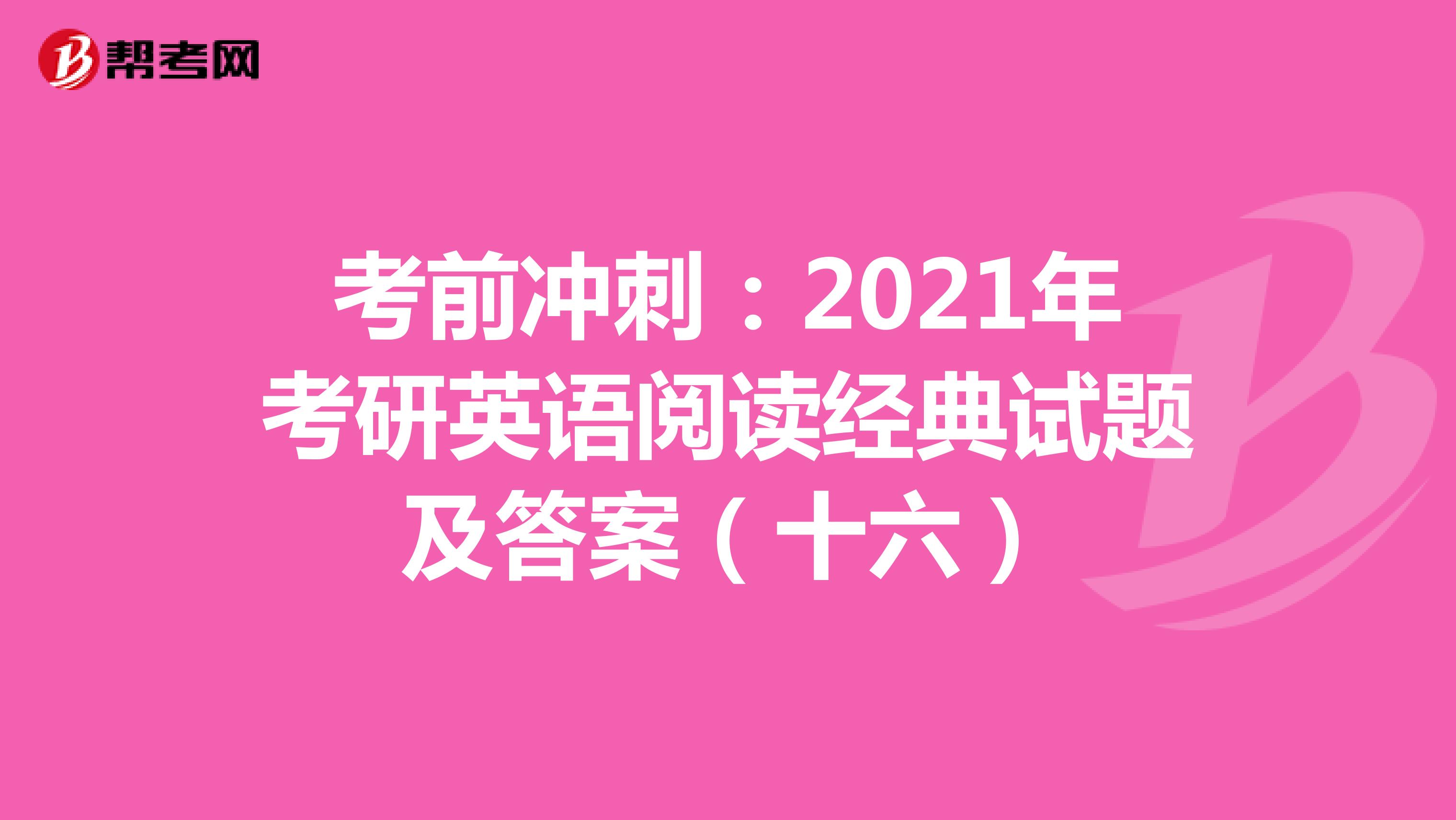
最近,有小伙伴在询问最后阶段,考研英语该如何备考才最有效。最后阶段,我们应该将备考的重点放在复习和了解考试上,多去练习历年真题和模拟试题。下面,帮考网为大家带来考研初试的一些模拟试题,一起来看看吧。
Historians have only recently begun to note the increase in demand for luxury goods and services that took place in eighteenth-century England. McKendrick has explored the Wedgwood firm’s remarkable success in marketing luxury pottery; Plumb has written about the proliferation of provincial theater, musical festivals, and children’s toys and books. While the fact of this consumer revolution is hardly in doubt, three key questions remain: Who were the consumers? What were their motives? And what were the effects of the new demand for luxuries?
An answer to the first of these has been difficult to obtain. Although it has been possible to infer from the goods and services actually produced what manufacturers and servicing trades thought their customers wanted, only a study of relevant personal documents written by actual consumers will provide a precise picture of who wanted what. We still need to know how large this consumer market was and how far down the social scale the consumer demand for luxury goods penetrated. With regard to this last question, we might note in passing that Thompson, while rightly restoring laboring people to the stage of eighteenth-century English history, has probably exaggerated the opposition of these people to the inroads of capitalist consumerism in general; for example, laboring people in eighteenth-century England readily shifted from home-brewed beer to standardized beer produced by huge, heavily capitalized urban breweries.
To answer the question of why consumers became so eager to buy, some historians have pointed to the ability of manufacturers to advertise in a relatively uncensored press. This, however, hardly seems a sufficient answer. Mckendrick favors a Veblem model of conspicuous consumption stimulated by competition for status. The “middling sort” bought goods and services because they wanted to follow fashions set by the rich. Again, we may wonder whether this explanation is sufficient. Do not people enjoy buying things as a form of self-gratification? If so, consumerism could be seen as a product of the rise of new concepts of individualism and materialism, but not necessarily of the frenzy for conspicuous competition.
Finally, what were the consequences of this consumer demand for luxuries? McKendrick claims that it goes a long way toward explaining the coming of the Industrial Revolution. But does it? What, for example, does the production of high-quality pottery and toys have to do with the development of iron manufacture or textile mills? It is perfectly possible to have the psychology and reality of a consumer society without a heavy industrial sector.
That future exploration of these key questions is undoubtedly necessary should not, however, diminish the force of the conclusion of recent studies: the insatiable demand in eighteenth-century England for frivolous as well as useful goods and services foreshadows our own world.
1. In the first paragraph, the author mentions McKendrick and Plumb most probably in order to
[A] contrast their views on the subject of luxury consumerism in eighteenth-century England.
[B] indicate the inadequacy of historiographical approaches to eighteenth-century English history.
[C] give examples of historians who have helped to establish the fact of growing consumerism in eighteenth-century England.
[D] support the contention that key questions about eighteenth-century consumerism remain to be answered.
2. Which of the following items, if preserved from eighteenth-century England, would provide an example of the kind of documents mentioned in lines 3-4, paragraph 2?
[A] A written agreement between a supplier of raw materials and a supplier of luxury goods.
[B] A diary that mentions luxury goods and services purchased by its author.
[C] A theater ticket stamped with the date and name of a particular play.
[D] A payroll record from a company that produced luxury goods such as pottery.
3. According to the text, Thompson attributes to laboring people in eighteenth-century England which of the following attitudes toward capitalist consumerism?
[A] Enthusiasm.
[B] Curiosity.
[C] Ambivalence.
[D] Hostility.
4. In the third paragraph, the author is primarily concerned with
[A] contrasting two theses and offering a compromise.
[B] questioning two explanations and proposing a possible alternative to them.
[C] paraphrasing the work of two historians and questioning their assumptions.
[D] examining two theories and endorsing one over the other.
5. According to the text, eighteenth-century England and the contemporary world of the text readers are
[A] dissimilar in the extent to which luxury consumerism could be said to be widespread among the social classes.
[B] dissimilar in their definitions of luxury goods and services.
[C] dissimilar in the extent to which luxury goods could be said to be stimulant of industrial development.
[D] similar in their strong demand for a variety of goods and services.
参考答案及解析
1.【答案】C
【考点解析】本题是一道例(举)证题型。根据题干中的“McKendrick and Plumb”可将本题的答案信息来源迅速确定在首段的第二、三句。由于这两句话和首段第一句之间存在例(举)证的关系,故针对首段第一句进行认真理解。通过综合分析和归纳这三句话,可得出含有“examples”的选项C是正确答案。考生在解题时一定要善于识别题型,这一点的基础是要学会识别句子之间的关系。
2. 【答案】B
【考点解析】这是一道细节推导题。题干中的信息以将本题的答案信息来源确定在第二段的三、四行。即第二段第二句的主句,该句中的“only a study of relevant personal documents written by actual consumers”暗示本题的答案是选项B。考生在解题时一定要学会识别原文和选项中同义词的替换。
3.【答案】D
【考点解析】本题是一道细节推导题。通过题干中的“Thompson”一词可迅速将本题的正确选项确定在第二段的尾句。从第二段尾句的前半部分即分号前面的部分我们不难推导出本题正确选项是D。原文中的“opposition”一词十分重要。考生在解题时要善于从原文的表面归纳出深刻的思想。
4.【答案】B
【考点解析】这是一道写作手法题型。旨在考察考生的语言基本功。本题考察考生对于段落写作结构的认识。本文第三段的第一、二句是对某一个问题的一种解释。本文第三段的第三、四、五句是对同一个问题的另一种解释,本文作者对这两种解释提出了质疑。本文第三段的第六、七句是作者本人针对前面两个解释所提出的另外一种解释。可见本题的正确选项是B。考生在解题时一定要重视文章或段落的写作结构。
5.【答案】D
【考点解析】本题是一道审题定位与关键词理解题。通过题干中的“the contemporary world of the text readers”可将本题的答案信息迅速确定在尾段,因为尾段中的“our own world”等于“the contemporary world of the text readers”。尾段最后一行中的“foreshadows”(预示;是……的预兆)一词暗示本题的正确选项是D。考生在解题时一定要有审题定位能力,并且对于原文中的关键词要有入目三分的理解。
以上就是帮考网为大家带来的全部内容,希望能给大家一些帮助。帮考网提醒:2021年考研正式报名已经开始,在预报名阶段未来得及报名的小伙伴要注意了。另外,小伙伴们如果还有其他关于考研信息的疑问,也可以留言咨询哦。
 22
22以前年度的普通研究生入学考试成绩还能查询吗?:以前年度的普通研究生入学考试成绩还能查询吗?以前的考研成绩能查,成绩查询可以登录中国研究生招生信息网,根据自己报考研究生考试的报名号登陆,即可查询以前的考研成绩。
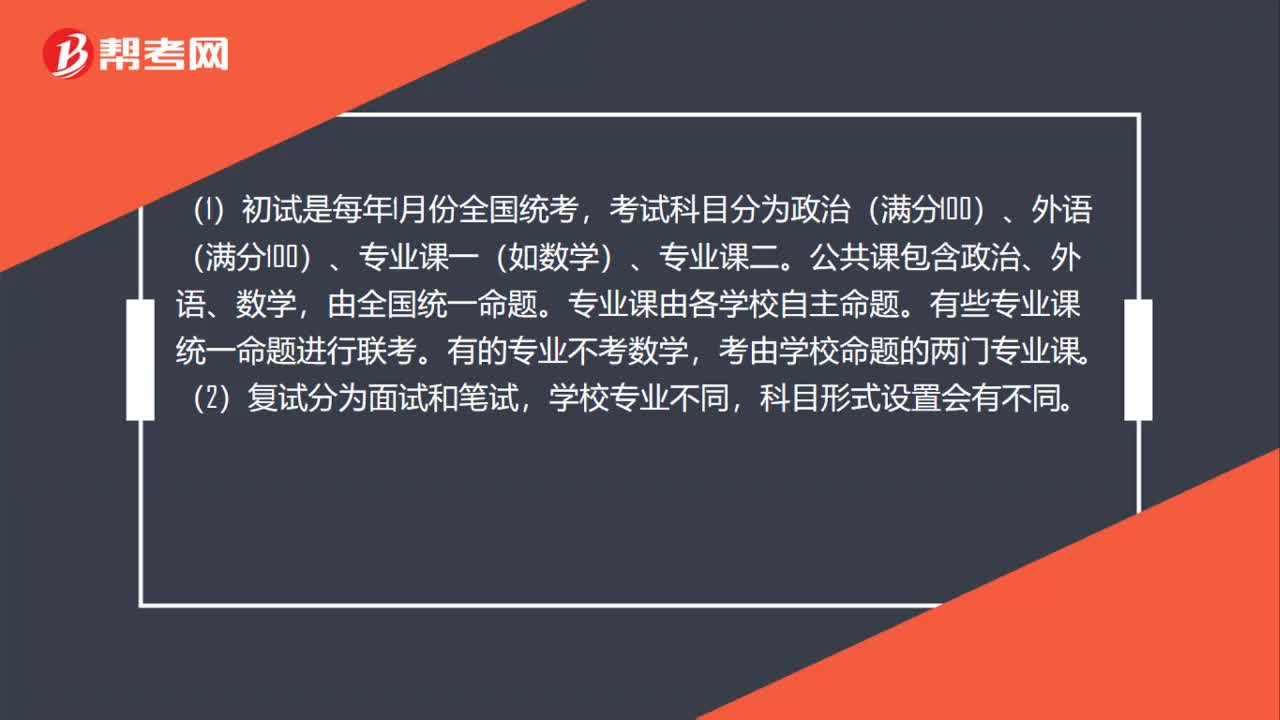 44
44研究生入学考试要考哪几门?:研究生入学考试要考哪几门?(1)初试是每年1月份全国统考,考试科目分为政治(满分100)、外语(满分100)、专业课一(如数学)、专业课二。公共课包含政治、外语、数学,由全国统一命题。专业课由各学校自主命题。有些专业课统一命题进行联考。有的专业不考数学,考由学校命题的两门专业课。(2)复试分为面试和笔试,学校专业不同,科目形式设置会有不同。
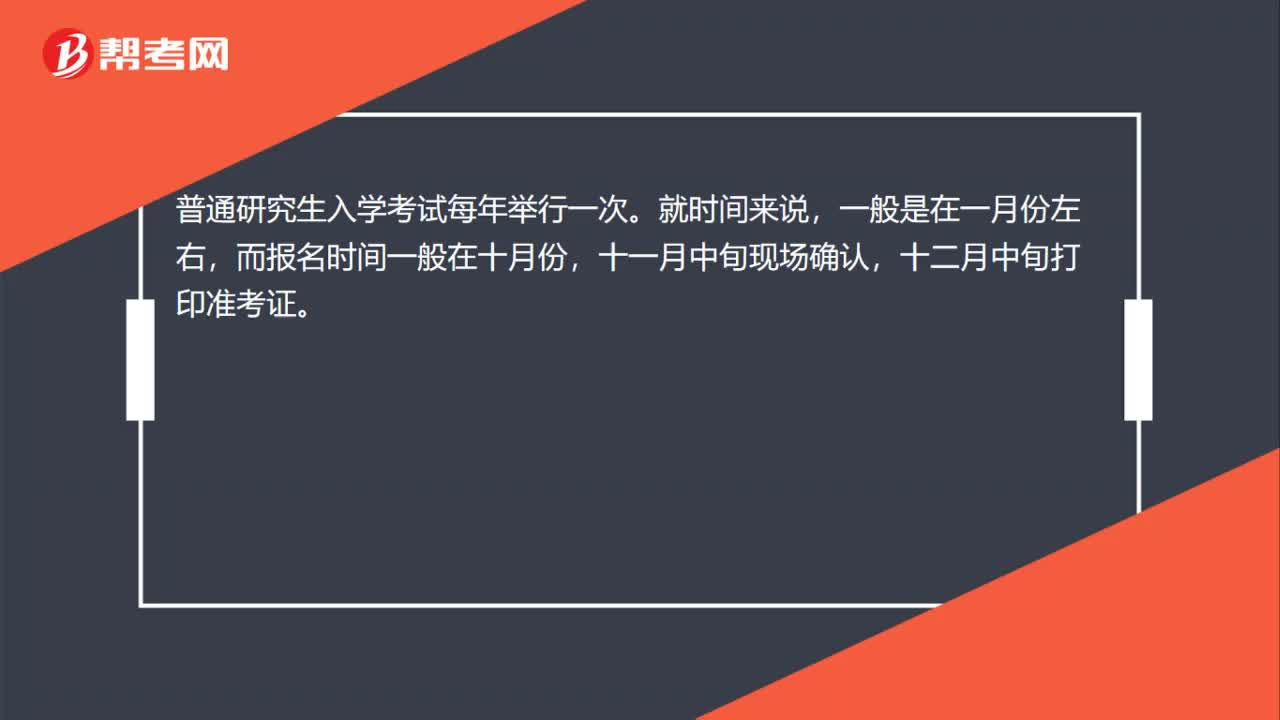 23
23普通研究生入学考试每年有几次?:普通研究生入学考试每年有几次?普通研究生入学考试每年举行一次。就时间来说,一般是在一月份左右,而报名时间一般在十月份,十一月中旬现场确认,十二月中旬打印准考证。
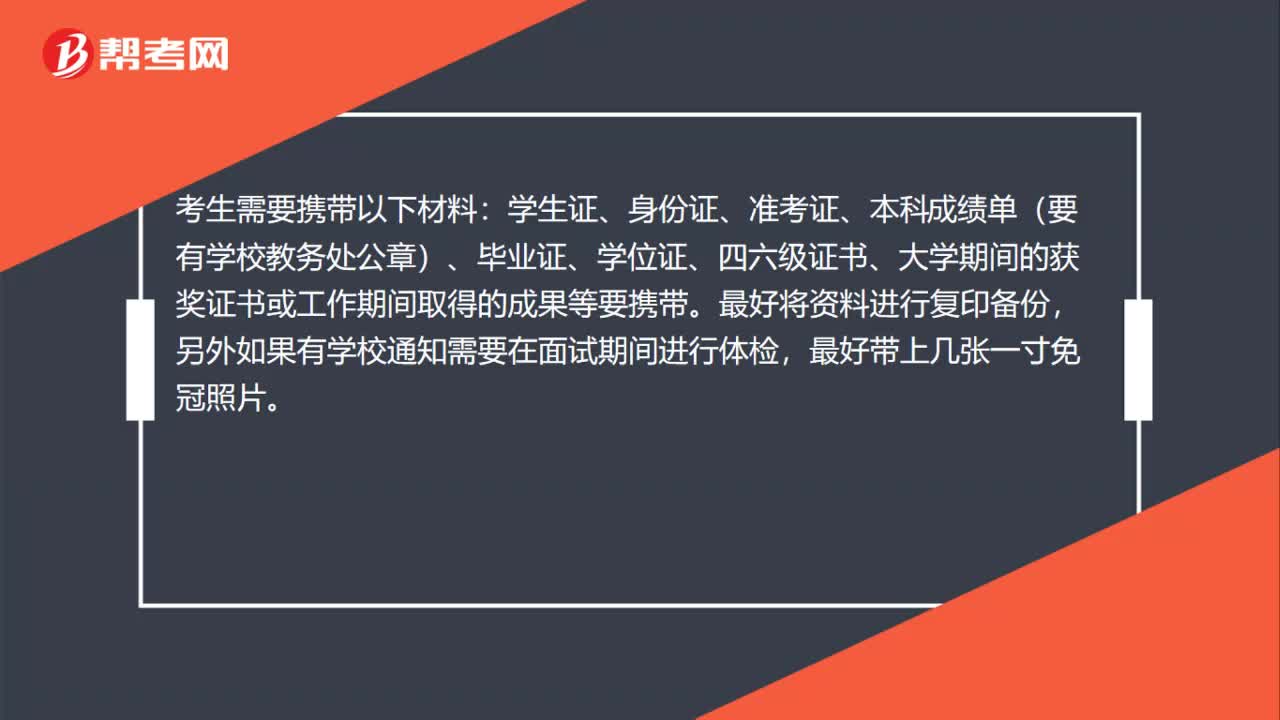 00:41
00:412020-06-06
 00:44
00:442020-06-06
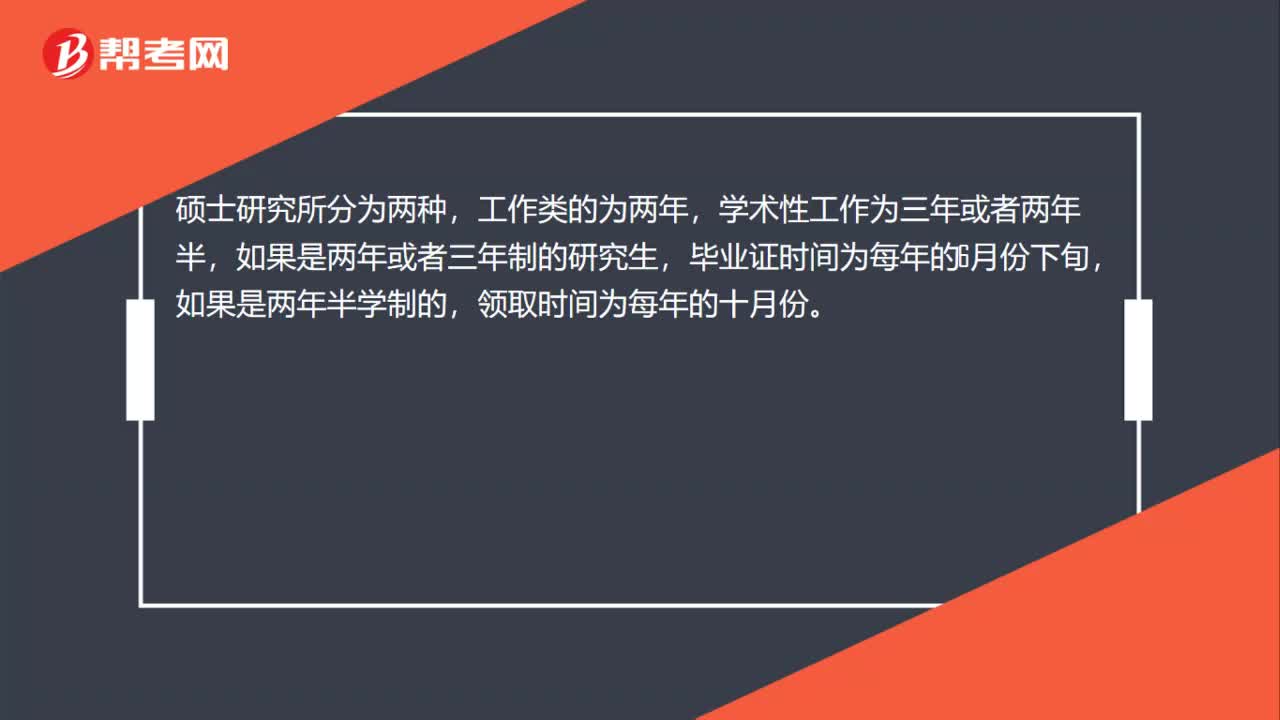 00:28
00:282020-06-06
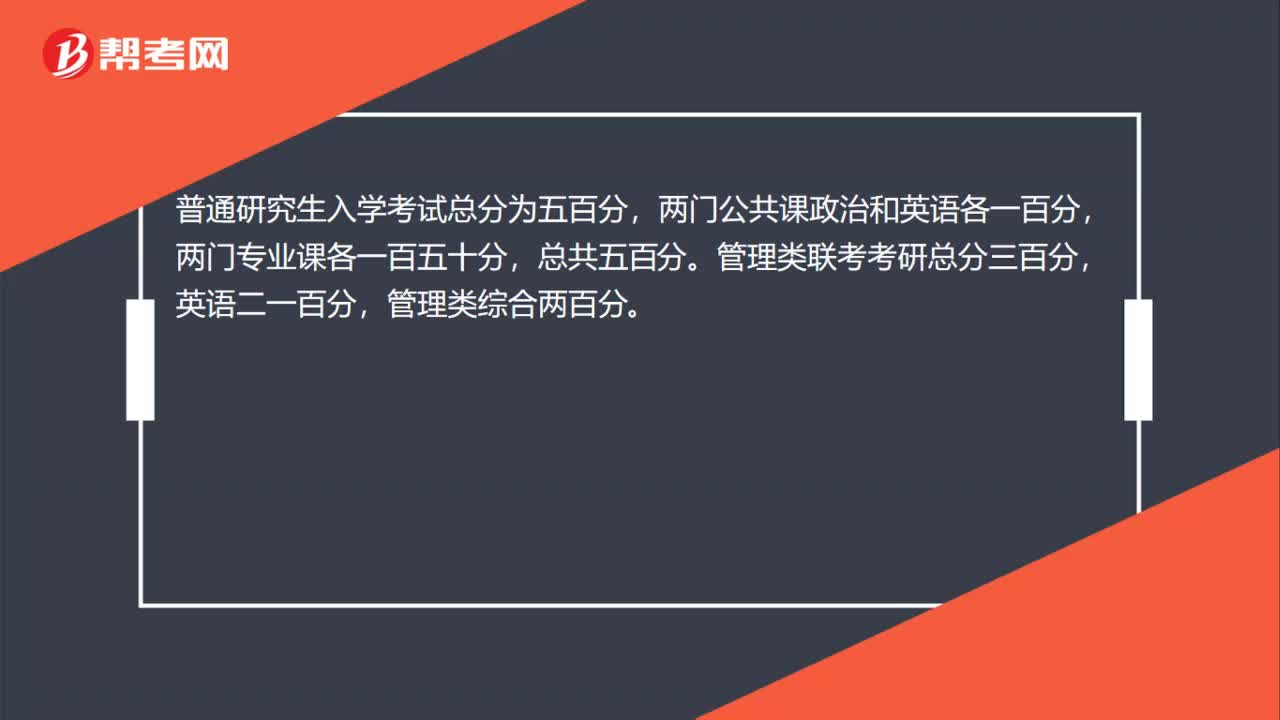 00:27
00:272020-06-06
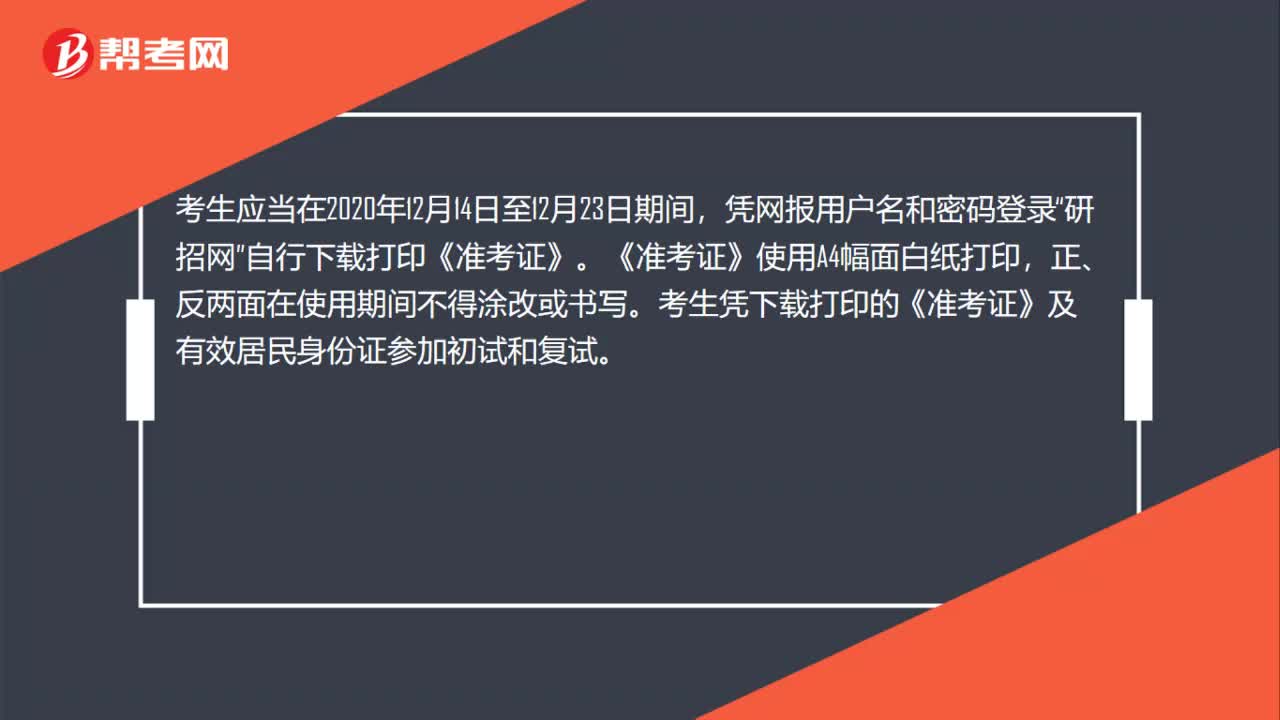 00:33
00:332020-06-06

微信扫码关注公众号
获取更多考试热门资料